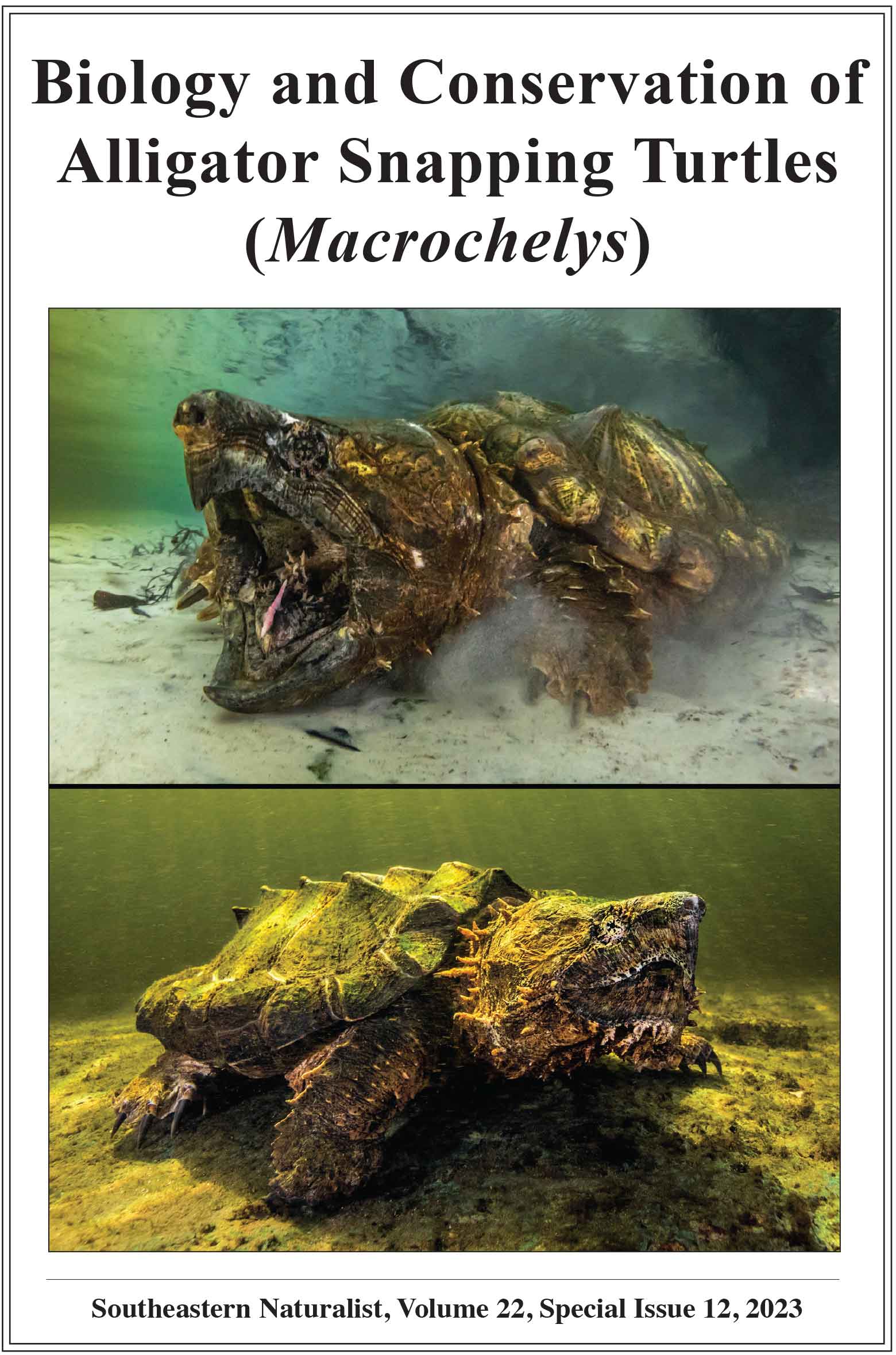Native Mammalian Predators Can Depredate Adult Burmese Pythons in Florida
Matthew F. McCollister1,*, Jillian M. Josimovich1, Austin L. Fitzgerald2, Deborah K. Jansen2, and Andrea F. Currylow2
1National Park Service, Big Cypress National Preserve, 33100 Tamiami Trail East, Ochopee, FL 34141. 2US Geological Survey, Fort Collins Science Center, South Florida Field Station in Everglades National Park, 40001 SR 9336, Homestead, FL 33034. *Corresponding author.
Southeastern Naturalist,Volume 20, Issue 2 (2021): N55–N59
Abstract
Invasive predators are of conservation concern because they contribute to species declines and extinctions worldwide. Interactions of native fauna and invasive predators can be complex, but understanding these relationships can guide management and restoration. Observations of these interactions are especially important for invaders with low detectability like Python bivittatus (Burmese Python) where data are sparse. Here, we provide the first detailed documentation of mammalian attacks on Burmese Pythons in Florida: 1 Lynx rufus (Bobcat) predation of an adult male python and 1 Ursus americanus floridanus (Florida Black Bear) non-lethal attack on an adult female python.
![]() Download Full-text pdf (Accessible only to subscribers. To subscribe click here.)
Download Full-text pdf (Accessible only to subscribers. To subscribe click here.)
Access Journal Content
Open access browsing of table of contents and abstract pages. Full text pdfs available for download for subscribers.
Issue-in-Progress: Vol. 23 (3) ... early view
Check out SENA's latest Special Issue:












 The Southeastern Naturalist is a peer-reviewed journal that covers all aspects of natural history within the southeastern United States. We welcome research articles, summary review papers, and observational notes.
The Southeastern Naturalist is a peer-reviewed journal that covers all aspects of natural history within the southeastern United States. We welcome research articles, summary review papers, and observational notes.